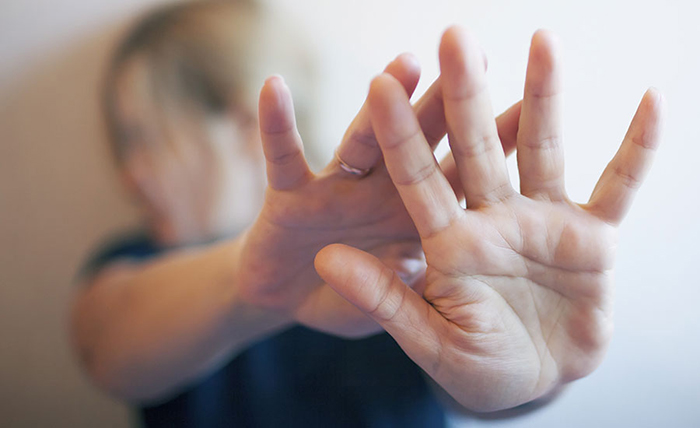Fausto Gomez OP
Violence is usually understood as an overpowering physical, moral or structural force that controls or manipulates the human person and the social group. Violence appears as an incurable virus in our world. We read the newspapers, we watch daily the news on television and see and hear repeatedly the word violence, a global pandemic clothed in injustice, corruption, murder, terrorism and wars, devastation of the environment, violence against children, women, migrants and refugees, the elderly and the poor.
Indeed, there is in our society what has been called “an infernal cycle of violence” constantly fed by oppressive structural violence (unjust economic, political and cultural structures), subversive revolutionary violence (armed revolutionary movements) and repressive authoritarian violence (tyrannical dictatorships of the right and the left). The three are interconnected and somehow help each other: usually structural violence generates revolutionary violence, which, in turn, creates more structural violence – and so on, in an apparently inescapable circular process.
As responsible human beings and believers, we are asked to face the pervading reality of violence. As citizens of a country and as citizens of the world, and as followers of Christ, we are aware of the darkening fact of multiple and diverse violence, and we firmly reject it as against human dignity, justice, the common good, solidarity and peace – and against God, the creator of all creatures. Cursing the darkness, however, leads nowhere – and it is useless. We are asked by our humanity and our faith to contribute something positive towards the building up of a just and peaceful world. We start our journey against violence and towards peace by renouncing any kind of violence in our personal and social life. Our hopeful faith permeated by love demands from us to banish violence from our hearts, words and deeds.
Fortunately, there are many persons and social groups and humanist and religious movements working against violence with the peaceful weapons of justice, peace and the integrity of creation. As there is a new awareness of the violence against nature, against climate change, there is also a growing awareness of solidarity and fraternity: of the fact that we are all brothers and sisters and creatures of the universe, which is our common home. Together we are conquering little by little the pandemic caused by Covid-19, and only by walking together by the path of peaceful struggle may we diminish the terrible violence contaminating our life in the world.
There are currently social unrest and demonstrations in many parts of the world. The wise worlds of Pope Francis: “We are witnessing numerous popular protests all over the world…; while I urge the demonstrators to present their demands peacefully, without giving in to the temptation of aggression and violence, I appeal to all those with public and governmental responsibilities to listen to the voice of their fellow citizens and to meet their just aspirations, ensuring full respect for human rights and civil liberties.”
There is in our world, in our nation, in our city, in our sinful hearts, perhaps, many poisonous seeds or weeds (injustice, corruption, discrimination, poverty) co-existing, inextricably tied up with good seeds or wheat (justice, solidarity, fraternity, compassion, generosity, peace). What can we do? We are asked to strengthen the good seed and weaken the poisonous weed. How? By condemning evil and injustice and announcing through words and deeds the wheat of the good deeds. And we do it with humility, prudence and respect of others. St Paul: “Do all things without murmuring or arguing so that you may be blameless and innocent, children of God without blemish in the midst of a crooked and perverse generation, in which you shine like stars in the world” (Phil 2:14:15).
Are we tempted to think that the poisonous weeds of violence are winning over the growing good seeds of wheat?Even if the violent ones in our world today seem to prosper more than the peaceful and honest peoples (after all, the good people are often the victims of the evil ones), the authentic Christian must show in his life and actions that he really believes in hope, in the saving power of love – in God! As disciples of Jesus, in particular, we believe in hope which at times may appear as “hope against hope,” like Abraham’s.
As human beings, and as believers in Jesus, we reject violence: “Violence is a lie, for it goes against the truth of our faith, the truth of our humanity. Violence destroys what it tends to defend: the dignity, the life, the freedom of human beings” (John Pau II in Ireland). “Jesus never promoted violence or intolerance. He openly condemned the use of force to gain power over others” (Pope Francis, Fratelli Tutti). We are asked not just to curse the darkness enveloping our world, but to contribute something, even if only little, to building up a world of nonviolence, justice, solidarity and fraternity. A candle in my hand is just a dot in the awesome darkness of violence in our world, but a candle in the hands of many becomes an illuminating light in the dark night of violence and an invitation to others to do the same.
For believers, an essential weapon against violence in society and in our hearts is prayer. And prayer conquers God. Jesus, the God-man keeps telling us: “Ask, and it will be given you” (Mt 7:7); “Bless those who curse you, pray for those who abuse you” (Lk 6:28).
No to violence! “Violence leads to more violence, hatred to more hatred, death to more death.” Pope Francis adds: “We must break this cycle which seems inescapable.” How to weaken the often lethal violence in our world? Bynonviolence? In our next column we shall reflect on nonviolence.


 Follow
Follow


